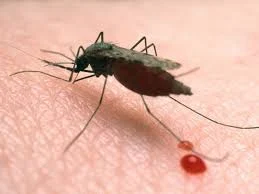By Chioma Umeha
The struggle to end malaria in Nigeria has entered
a new global phase with Nigerian Champion of the struggle, Aliko Dangote
teaming up with other influential private and public leaders at the just
concluded World Economic Forum (WEF)in Davos to form End Malaria Council, a
platform to ensure malaria eradication assumes a top global priority.
The End Malaria Council is meant to drive global
attention and funding to wipe out the disease for good.
Dangote, a foremost entrepreneur has always
canvassed for concerted efforts to rid Nigeria and Africa of malaria which he
said decimates the African workforce and the young ones, thus slowing down its
economic growth. According to him, the world without malaria is possible and
that it is a challenge to allHe described malaria as a preventable disease and
therefore all should be done to collaborate on how to deal with it.
While expressing happiness that successes are
being recorded with the active support and participation of world leaders in
government and business, the Nigerian Malaria Ambassador noted the success
achieved so far was key to stimulation of the nation’s economy as the potential
productive sector of the population are the vulnerable groups.
In his comment on the Council, Bill Gates who
co-authored a report with Chambers in 2015 called Aspiration to Action: What
will it take to end malaria?, said “the next chapter of the fight against
malaria starts now.
Gates added that “For the first time in history,
we have a roadmap to a world without malaria – where no one has to die from a
mosquito bite ever again. With renewed focus, innovation and new commitments of
leadership and funding, we can be the generation to end malaria once and for
all.”
The launch of the End Malaria Council comes just a
month after the release of the World Health Organization’s 2016 World Malaria
Report, which showed remarkable progress in reducing cases and deaths from
malaria since 2000, but also underscored the urgent need for global leadership,
new funding and innovation to stay on track to meet targets.
Members of the End Malaria Council are expected to
work in collaboration with the Roll Back Malaria Partnership and other key
partners to help countries and regions achieve their malaria control and
elimination goals. Members of this unique group will use their voices and
networks to support the work already underway by malaria field workers,
scientists and experts by focusing on three areas: building political will, mobilizing
resources and supporting the development of new tools to find, prevent and
treat malaria.
The Council has nine founding members, a group of
whom met on the sidelines of the World Economic Forum Annual Meeting in Davos,
Switzerland to discuss strategies for filling critical financing gaps in
Africa, Asia and Latin America. The End Malaria Council will grow to represent
all of the key malaria-endemic regions. Inaugural members include.
Other Council members are Peter Chernin, Founder,
Chernin Entertainment and The Chernin Group, Idriss Déby, President, Republic
of Chad (representing the African Leaders Malaria Alliance), Jakaya Kikwete,
Former President, United Republic of Tanzania, Graça Machel, Founder,
Foundation for Community Development, Mozambique, Luis Alberto Moreno,
President, Inter-American Development Bank and Ellen Johnson Sirleaf,
President, Republic of Liberia.
It would be recalled that Dangote had on the
platform of his Dangote Foundation galvanized stakeholders, including the
central government to embark on the strategy code named Malaria Zero, an
ambitious programme to eliminate Malaria by 2020 in Nigeria.
Then the stakeholders at the inaugural meeting
sponsored by Dangote foundation in Lagos launched what they called the Private
Sector Engagement Strategy against Malaria (PSESM), which appealed to the
Private Sector to join the movement and save lives of Nigerians and spare the
nation of an estimated annual economic loss of $2.4 billion.
The engagement sought to organize the Private sector
operators to help the government out in the efforts at stamping out malaria in
Nigeria totally, because the government alone could not succeed without the
assistance of the corporate firms.




